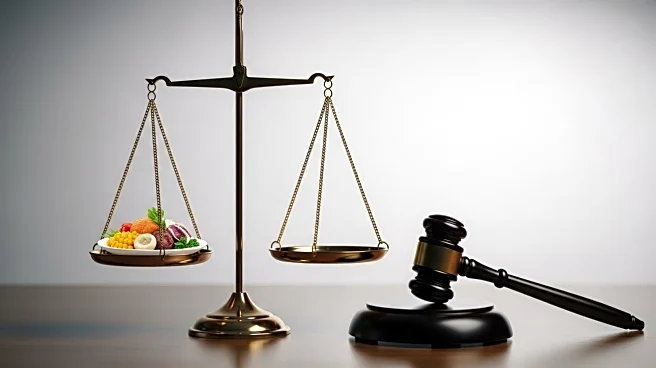What's Happening?
Israel's Supreme Court has ruled that the government must improve the food supply for Palestinian security prisoners, citing inadequate nutrition that fails to meet basic subsistence needs. This decision follows a petition by the Association for Civil Rights in Israel and the Israeli rights group Gisha, which highlighted malnutrition and starvation among prisoners due to changes in food policy after the Gaza war began. The court's ruling mandates the prison service to ensure food supply that meets legal standards for basic existence. National Security Minister Itamar Ben-Gvir criticized the ruling, maintaining that prisoners would continue to receive minimal conditions as stipulated by law.
Why It's Important?
The ruling underscores ongoing human rights concerns regarding the treatment of Palestinian prisoners in Israeli detention facilities. It highlights the tension between security policies and humanitarian obligations, potentially impacting Israel's international reputation and relations. The decision may influence future legal and policy debates on prisoner rights and government accountability. Rights groups view the ruling as a step towards addressing alleged abuses in detention centers, advocating for immediate implementation to prevent further harm to prisoners.
What's Next?
The prison service is expected to comply with the court's order to improve food conditions, although resistance from political figures like Ben-Gvir may complicate implementation. Rights groups will likely continue monitoring the situation, pushing for broader reforms in prison conditions. The ruling may prompt further legal challenges and advocacy efforts to address other alleged abuses in detention facilities.
Beyond the Headlines
The ruling may have broader implications for Israel's legal system and its approach to human rights issues, potentially influencing public opinion and policy debates. It raises ethical questions about balancing security concerns with humanitarian obligations, reflecting ongoing societal and political divisions.









